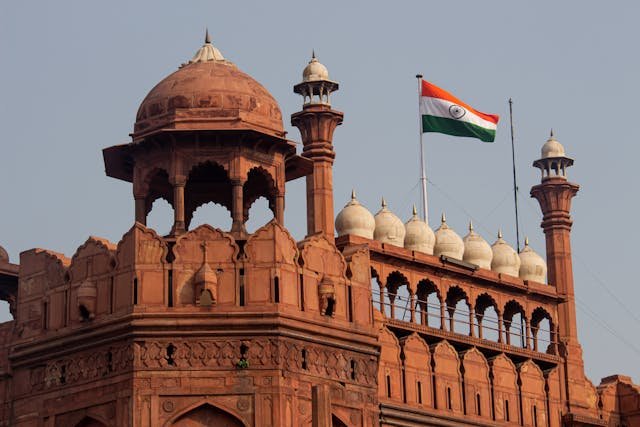In India, getting a prosthetic shouldn’t depend on where you live or how much you earn. But often, that’s the reality. While the cost of artificial limbs can be high, many government schemes now offer help. The challenge is knowing where to go, what’s covered, and how to claim it.
If you or your loved one needs a prosthetic, schemes like Ayushman Bharat, CGHS (Central Government Health Scheme), and ECHS (Ex-Servicemen Contributory Health Scheme) can be life-changing. But every city has its own network, rules, and approved centers.
This guide will walk you through how these schemes work—city by city. We’ll help you understand which hospitals offer prosthetics under government cover, what documents are needed, and how RoboBionics fits into this system.
Let’s begin the journey toward care that’s not only high-quality—but also fully covered.
Understanding Government Health Coverage for Prosthetics
The Role of Public Health Schemes in India
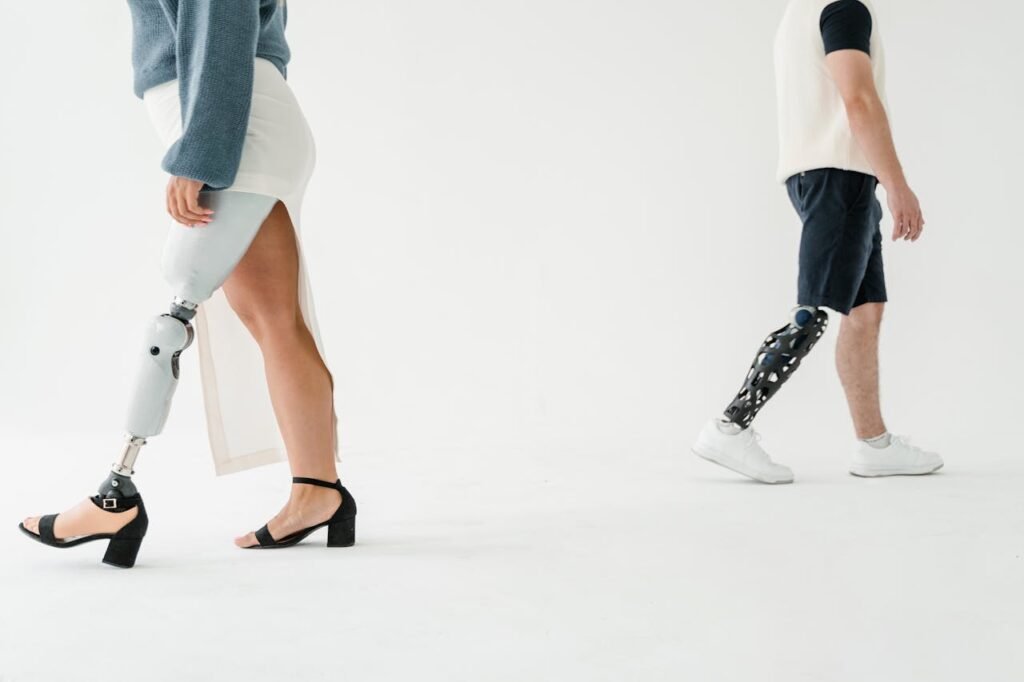
India has made big progress in public healthcare over the last few years. From primary treatment to surgeries, more is now being offered for free or at a low cost.
But when it comes to prosthetic limbs, many people still don’t know that some government schemes cover the full or partial cost.
This is especially true for those covered under Ayushman Bharat, CGHS, or ECHS—three of India’s biggest national health programs.
Each scheme works differently. Each covers different people. And each is available in different cities or through specific hospitals.
Understanding the details helps you claim your benefit without delay or confusion.
Why Coverage for Prosthetics Matters
Prosthetics are not like medicines. They aren’t something you buy every month. But when you need one, it can be life-saving.
A good-quality bionic hand or leg can cost between ₹1.5 to ₹10 lakh. Without insurance or government help, many people simply cannot afford it.
When schemes like Ayushman Bharat or CGHS pay for these devices, it means more people can move, work, and live with dignity.
But this only works when you know your rights, your options, and where to go.
That’s why city-wise understanding is important.
Ayushman Bharat (PMJAY): What It Covers and Where
Who Is Eligible?
Ayushman Bharat, also known as PMJAY, is for families from low-income or economically weaker backgrounds.
If your family is listed in the SECC 2011 database (Socio-Economic Caste Census), you may already be eligible.
You can check this online using your mobile number or Aadhaar. Or ask at any government hospital.
You don’t have to pay for the scheme. It’s fully funded by the government.
Once verified, you’ll receive a PMJAY card—your ticket to free treatment in empaneled hospitals.
Does It Cover Prosthetics?
Yes, under Ayushman Bharat, prosthetic limbs are covered under certain medical packages. This includes both upper and lower limb prosthetics—mechanical or electronic.
The scheme covers the cost of the prosthetic, hospital stay, consultation, and fitting services.
However, not every hospital or prosthetic center is empaneled. You must go to a listed hospital that offers this package. Otherwise, you will not get reimbursement.
This is where city-wise knowledge becomes important.
Ayushman Bharat in Major Cities
Delhi NCR:
Hospitals like Safdarjung, AIIMS, and Dr. Ram Manohar Lohia Hospital offer prosthetics under PMJAY. Some private hospitals are also empaneled.
Mumbai:
KEM, Nair Hospital, and JJ Hospital provide Ayushman prosthetic services. Many clinics are partnered with larger government hospitals.
Chennai:
Rajiv Gandhi Government General Hospital and Stanley Medical College are key providers. Several centers in Velachery and T Nagar act as satellite fitting hubs.
Bangalore:
Victoria Hospital and Bowring Hospital offer Ayushman-linked prosthetic care. Limited private hospitals also participate.
Kolkata:
Sambhu Nath Pandit Hospital and Calcutta Medical College are major centers. Some NGOs partner with the state to deliver prosthetic fittings here.
In each of these cities, the availability depends on active empanelment. So always call and check if prosthetics are currently being issued under the scheme.
How to Apply for a Prosthetic Under PMJAY
Once your eligibility is confirmed, go to a hospital offering prosthetics under PMJAY.
Carry your Ayushman card, Aadhaar, and recent medical records.
Meet the orthopedic or rehabilitation department. They will guide you through the form, evaluation, and approval process.
If the hospital doesn’t have an in-house prosthetic lab, they will refer you to a partnered provider—sometimes even RoboBionics.
We often work alongside PMJAY hospitals to deliver high-quality limbs while keeping everything covered under the scheme.
CGHS: Prosthetic Coverage for Central Government Employees and Pensioners
What is CGHS and Who is Covered?

CGHS, or the Central Government Health Scheme, is one of the oldest health benefits programs in India. It is made for people who work or have worked in the central government, including:
- Active government employees
- Central government pensioners
- Members of Parliament
- Judges of the Supreme Court and High Court
- Freedom fighters
- Some autonomous body employees (if their institution is enrolled)
This is not an automatic benefit. You must be a registered CGHS cardholder. The card contains your unique beneficiary ID and must be shown every time you access treatment or claim reimbursements.
Does CGHS Cover Prosthetic Limbs?
Yes. Prosthetic devices—like artificial hands, arms, legs, or fingers—are covered under CGHS if they are medically necessary.
That means you must have a doctor’s recommendation and approval from the CGHS Medical Officer.
You can get coverage for:
- Mechanical prosthetic limbs
- Myoelectric bionic hands and arms
- Sockets and repairs
- Fittings and training sessions
The cost is reimbursed as per CGHS-approved rates, and you usually need to get treatment from an empaneled hospital or clinic.
In special cases, you can go to a non-empaneled center (like RoboBionics) but get reimbursement after approval. We guide our patients step-by-step on this process.
CGHS Prosthetic Support in Key Indian Cities
Delhi:
This is the largest CGHS zone. Patients here have access to facilities like AIIMS, RML, and Safdarjung, which refer prosthetic cases to recognized vendors. Several private CGHS-empaneled hospitals, such as Sir Ganga Ram and Fortis, also handle such cases.
RoboBionics frequently provides prosthetic fittings for patients from Delhi under doctor referrals from these institutions. We help with documentation for reimbursement.
Hyderabad:
CGHS coverage is available through Osmania General Hospital and Gandhi Hospital. Private CGHS-empaneled clinics also help with prosthetic fittings.
In some cases, patients are referred to specialized vendors like us, especially when advanced bionic hands like Grippy™ are required.
Chennai:
CGHS services are coordinated through Southern Railway Hospital and General Hospital. Patients often go through the government rehabilitation department for evaluations.
RoboBionics provides prosthetic services on doctor recommendation, and we supply all the documents needed for CGHS claim submission.
Kolkata:
Government hospitals like SSKM and RG Kar Medical College are the primary CGHS hubs here. Reimbursements are available for approved prosthetic devices, but proper prescription and prior approval are essential.
Many retired central government staff from Kolkata consult us after receiving the green signal from their medical officer.
Pune and Nagpur:
These cities have active CGHS wellness centers and coordination offices. Local users can visit empaneled doctors who refer prosthetic cases to vendors like RoboBionics.
We provide direct coordination with wellness centers for faster claim processing.
Bangalore:
Victoria Hospital and NIMHANS often process CGHS cases. Prosthetic claims are reviewed on a case-by-case basis. Delays are common unless documentation is complete.
We help streamline the process and offer EMI support for patients while they wait for their reimbursement.
How to Claim Prosthetics Under CGHS
- Consult a CGHS doctor at your nearest wellness center or government hospital.
- Get a written recommendation for a prosthetic.
- Choose a CGHS-approved clinic. Or, if unavailable, go to a specialist like RoboBionics and collect a detailed estimate and invoice.
- Submit a reimbursement form along with all medical reports, invoices, and doctor approval to your CGHS zonal office.
- Keep copies of everything. Processing usually takes 4–6 weeks.
We also offer claim support. Our team will guide you with forms, formats, and follow-ups to ensure your claim isn’t delayed or rejected.
ECHS: Prosthetic Support for Veterans and Their Families
What Is ECHS and Who Is Eligible?
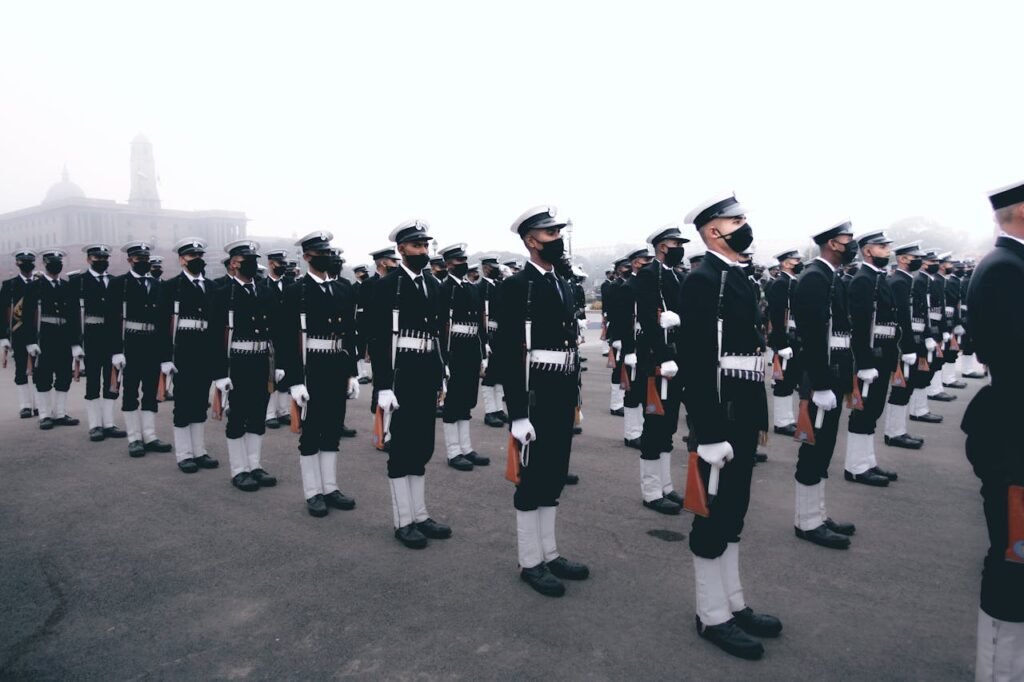
ECHS stands for Ex-Servicemen Contributory Health Scheme. It’s a healthcare program created by the Ministry of Defence for retired armed forces personnel and their dependents.
It covers a wide range of medical needs—including prosthetic limbs—at military hospitals, designated ECHS polyclinics, and empaneled private hospitals across India.
To use this scheme, you must be registered with ECHS and have a valid ECHS Smart Card. This card is linked to your service number and category.
Spouses, dependent children, and in some cases, dependent parents are also eligible for care under ECHS.
Does ECHS Cover Prosthetics?
Yes, ECHS provides coverage for prosthetic limbs if they are required due to injury, amputation, illness, or war-related trauma.
The process involves getting referred from an ECHS polyclinic to a Service Hospital, where your need will be assessed. If the Service Hospital does not have the right facility, they will issue a referral to an empaneled private hospital or vendor.
That’s where clinics like RoboBionics come in. We receive referrals from military hospitals and provide the fitting, training, and documentation for reimbursement.
ECHS covers both basic mechanical prosthetics and advanced bionic devices, depending on the case and budget clearance.
City-by-City ECHS Coverage for Prosthetics
Pune:
Pune has one of the most active ECHS networks. Command Hospital Southern Command and Military Hospital Kirkee handle most prosthetic referrals.
Veterans in Pune are often referred to empaneled centers or vendors like RoboBionics when advanced bionic hands are required. We assist with end-to-end paperwork and follow-ups.
Delhi Cantt:
Delhi has the Base Hospital and multiple ECHS polyclinics. These issue referrals to private partners for devices not available in-house.
Several patients have come to RoboBionics from Delhi ECHS with formal MO (Medical Officer) approval and received successful reimbursement after treatment.
Chandigarh and Mohali:
Command Hospital Western Command is the referral center here. Prosthetic claims are processed smoothly, especially for veterans with service-related injuries.
RoboBionics has delivered multiple fittings for Chandigarh-based veterans and their families, including on-site training.
Lucknow and Kanpur:
Military Hospital Lucknow and Central Command handle prosthetic cases through ECHS. Fittings are provided either in-house or by external vendors.
When referred, our team provides direct service in homes or clinics and assists with full claim documentation.
Bangalore:
The Command Hospital Air Force and ECHS polyclinics across Yelahanka and Indiranagar manage these cases.
Veterans with upper limb amputations often get referred to RoboBionics for advanced myoelectric hands. Our EMI plans also help while the reimbursement is being processed.
Jaipur and Jodhpur:
These areas serve many retired army personnel. Military Hospital Jodhpur handles referrals, while Jaipur-based polyclinics coordinate outpatient care.
RoboBionics has been referred by ECHS patients from these cities who require modern solutions unavailable locally.
Kochi and Trivandrum:
Southern Naval Command handles prosthetic cases here. While in-house fitting is available, patients are often referred to specialists like us for upper-limb devices.
We handle fittings in Kochi and support with all required forms, medical bills, and photographs for final submission.
How to Get Prosthetic Coverage Under ECHS
- Visit your nearest ECHS polyclinic with your ECHS Smart Card.
- Get a referral to a Service Hospital for assessment.
- If needed, receive a second referral to an empaneled private vendor or prosthetic center.
- Get a detailed cost estimate and approval before the procedure.
- After the fitting, collect all original bills, reports, and forms.
- Submit them to your ECHS cell for reimbursement.
RoboBionics helps at each step—from cost estimates to filling ECHS claim forms and ensuring documentation matches the approval.
We also keep a record of serial numbers, socket materials, and fitting procedures, so your claim is not delayed due to missing technical details.
Comparing Ayushman Bharat, CGHS, and ECHS: Which Is Best for You?
Each Scheme Serves a Different Purpose
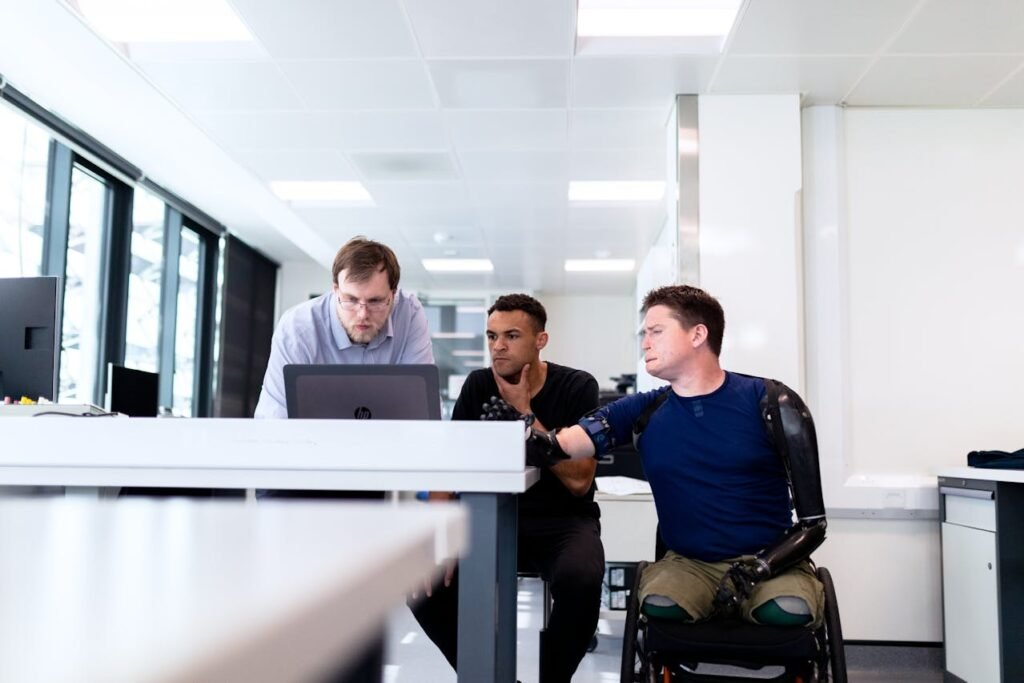
All three government schemes—Ayushman Bharat, CGHS, and ECHS—offer valuable support for prosthetic care. But they’re designed for different groups of people.
Ayushman Bharat is for low-income families. It’s useful in rural and semi-urban areas where private insurance is rare.
CGHS supports current and retired central government employees. It works well in metro cities where CGHS wellness centers are active.
ECHS is designed specifically for ex-servicemen and their families. It offers deep coverage, especially for service-related injuries.
There’s no one-size-fits-all scheme. The right one for you depends on your background, city, and access to empaneled centers.
Where They Work Best (And Why)
Ayushman Bharat is most effective in public hospitals across states like Bihar, Odisha, Madhya Pradesh, and West Bengal. It works well when you’re near a large government medical college or hospital.
CGHS works best in Delhi, Hyderabad, and Chennai—where multiple empaneled centers exist and zonal offices process claims more efficiently.
ECHS shows the best results in defense-heavy regions like Pune, Chandigarh, and Lucknow, where military hospitals are well-staffed and equipped to process referrals quickly.
At RoboBionics, we’ve seen success with all three—depending on how well-informed and supported the patient is.
Practical Tips for Faster Claim Approval
Start with a Doctor’s Advice
Don’t begin the claim process by talking about money. Start by getting a medical recommendation. All three schemes require this step.
A certified doctor must say that you need a prosthetic. Without this, claims get delayed or denied.
Keep Every Document in Place
Missing paperwork is the number one reason for claim rejection. Make sure you have:
- Aadhaar and scheme card (PMJAY, CGHS, or ECHS)
- Doctor’s prescription
- Cost estimate from the vendor
- Original bills and invoices
- Photographs of the fitted device (for some schemes)
- Pre-approval letter (if needed)
At RoboBionics, we help organize all of this—so you don’t have to figure it out alone.
Ask for Help When You’re Stuck
Each scheme has a nodal officer or helpdesk. Call them if your claim is taking too long or if you don’t understand a form.
If you’re working with us, our backend team does the follow-up and escalation for you.
Never feel like you’re bothering someone by asking questions. This is your right—and your recovery depends on it.
Real Stories, Real Impact
Rani from Lucknow (Ayushman Bharat)
Rani lost her hand in a gas cylinder explosion. Her family couldn’t afford treatment. With a PMJAY card, she received a mechanical hand through a public hospital.
We were her fitting partner. She now runs a food stall again—and says she feels like herself for the first time in two years.
Mr. Das from Kolkata (CGHS)
A retired postmaster, Mr. Das didn’t know CGHS covered prosthetics. His daughter found RoboBionics online. We helped get his doctor’s referral, fitting, and full reimbursement—all without stress.
He now writes, eats, and reads his newspaper with his Grippy™ Mech Hand.
Major Kumar from Jodhpur (ECHS)
Injured during service, Major Kumar struggled to find a bionic hand provider nearby. After a referral through ECHS, he connected with us.
We delivered his hand in 3 weeks. His paperwork was so clean, he was reimbursed in full within 30 days. Today, he’s mentoring young cadets.
Expanding Prosthetic Access Through Government Schemes: What Clinics and Startups Must Know
Think Beyond the Device—Start Building Systems
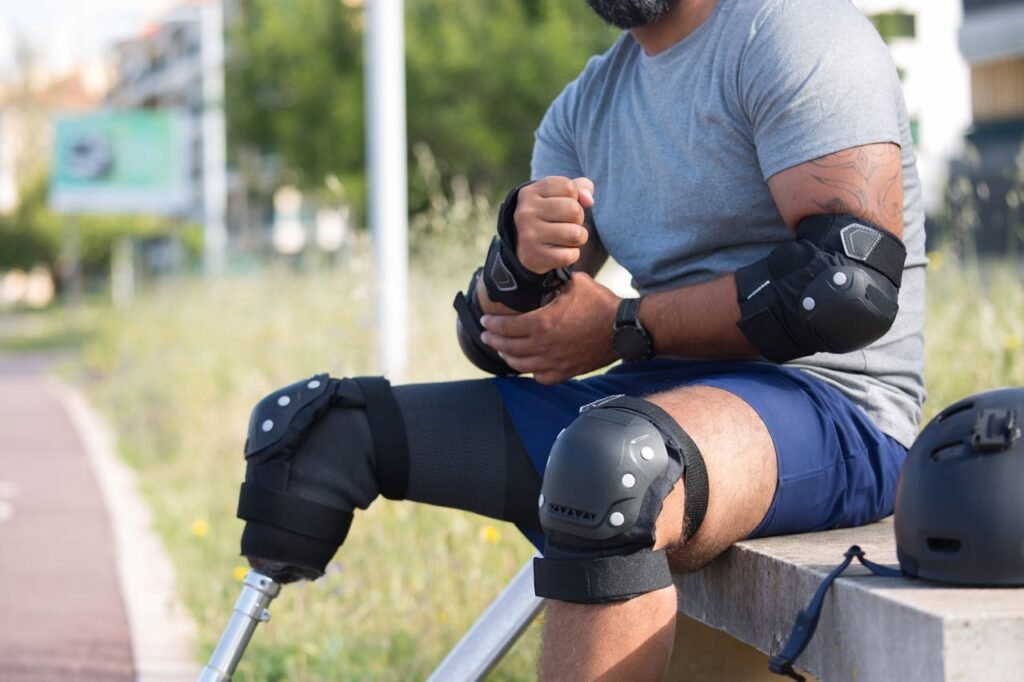
Many prosthetic businesses focus only on fitting and selling devices. But the real opportunity lies in building systems around government partnerships. Whether you’re a startup or a full-scale clinic, becoming a recognized vendor or referral partner under Ayushman Bharat, CGHS, or ECHS is not just an ethical move—it’s a smart one.
For example, if your clinic is empaneled under PMJAY in even one Tier 2 city, you open the door to hundreds of patients who previously couldn’t afford care. The volume alone justifies the paperwork.
Start the empanelment process early. Each scheme has specific guidelines, but the effort is worth it for long-term sustainability.
Build Local Government Relationships
You don’t have to wait for patients to walk in. Go to the source. Build strong ties with medical officers, district health authorities, and scheme nodal points in your city.
For instance, many ECHS referrals depend entirely on the trust built between the polyclinic’s MO and the private vendor. A five-minute conversation today can become a five-year patient pipeline tomorrow.
Train your admin team to handle follow-ups, schedule meetings with scheme coordinators, and always keep updated service records. These small touches make your center trustworthy in the eyes of the system.
Make Documentation Your Competitive Edge
You might deliver the best prosthetic hand in the market—but if your invoice lacks the right code, or your patient doesn’t receive the referral in the proper format, their claim can get rejected.
Turn your documentation into a service feature. Offer claim-friendly invoices, printed product serial numbers, photographic proof of fitting, and pre-filled government forms.
Patients will return to you—not just because of your devices, but because you made their lives easier.
This is a unique value proposition many clinics ignore.
Educate First, Sell Later
There’s a huge gap in awareness. Most eligible patients don’t even know they can claim a prosthetic through these schemes.
Start offering free awareness sessions at ECHS polyclinics, CGHS wellness centers, or district hospitals. Teach both staff and patients about what’s possible. Share simple brochures, conduct webinars, and record short explainer videos in local languages.
This kind of value-first marketing builds lasting trust—and positions your brand as a guide, not just a seller.
Plan for Scalability with Micro-Hubs
As you begin working with government schemes, patient volumes can rise fast. But you don’t need full clinics everywhere. Use satellite hubs—small fitting or service points in rented spaces, partnered hospitals, or mobile vans.
These “micro-hubs” lower cost, increase reach, and allow you to serve multiple cities without full infrastructure.
They’re ideal for scheme-driven models where approval comes first, and device delivery follows.
Final Thoughts: One Country, Many Paths to Care
Prosthetics are more than medical devices. They are tools for dignity, independence, and confidence. Whether it’s a farmer in Bihar, a teacher in Chennai, or a soldier in Pune—everyone deserves access to world-class care.
India is making that possible through Ayushman Bharat, CGHS, and ECHS. These schemes may seem confusing at first, but with the right help, they can open doors you never thought existed.
At RoboBionics, we’re not just building hands. We’re building bridges between care and access. Between a need and a solution.
If you’re ready to take the next step, we’re ready to walk with you.
Schedule your consultation or ask about scheme-based support
https://www.robobionics.in/bookdemo
Care shouldn’t be a privilege. With the right support, it becomes a right.



